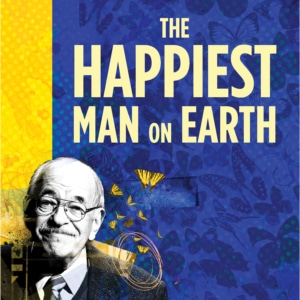DCPA NEWS CENTER
Enjoy the best stories and perspectives from the theatre world today.
Enjoy the best stories and perspectives from the theatre world today.

Based on The New York Times best-selling memoir by Eddie Jaku, The Happiest Man on Earth tells a remarkable story of survival, revealing a paradox of joy built on a foundation of grief. This Denver Center Theatre Company production is playing September 19 through November 2, 2025 in the Singleton Theatre.
How does Eddie Jaku’s identity evolve throughout the play, from his childhood in Leipzig to his life in Australia? What role does his name change to “Walter Schleif” play in this transformation?
Eddie’s father tells him, “Family first, family second, family last. And we are all family.” How does this philosophy shape Eddie’s decisions and survival throughout the play?
Eddie faces several moral decisions, such as whether to steal a dead soldier’s uniform or whether to return to Germany to save his mother. How do these moments reflect his values and humanity?
Discuss the role of friendship in Eddie’s survival, particularly his relationship with Kurt. How does their bond contrast with the cruelty around them?
Despite enduring unimaginable suffering, Eddie calls himself “the happiest man on earth.” What does this reveal about his perspective on life and the power of choice?
How does the play use personal narrative to illuminate the broader history of the Holocaust and World War II? What moments stand out as particularly impactful?
How does Eddie’s relationship with Flore help him begin to heal from his trauma? What challenges does he face in learning to live again?
Why does Eddie choose to share his story publicly for the first time? What does the play suggest about the importance of bearing witness?
In what ways does the title The Happiest Man on Earth challenge the audience’s expectations? How does the play redefine what happiness means?
Extended Discussion: For Readers of the Book and Viewers of the Play
How does Eddie Jaku’s tone in the memoir compare to his character’s tone in the play? In what ways does the theatrical adaptation amplify or soften the emotional impact of his story?
In the book, Eddie emphasizes that hatred is a prison. How is this idea dramatized in the play, and how does it evolve through Eddie’s interactions with characters like Helmut and the SS guards?
The memoir and the play both highlight Eddie’s friendship with Kurt. How do their shared experiences differ between the two formats, and what does their bond reveal about the human capacity for resilience?
Eddie’s engineering skills play a crucial role in his survival. Compare how these skills are portrayed in the book versus the play. What do these moments say about the intersection of intellect and instinct in life-or-death situations?
Eddie’s decision to speak publicly about his experiences is a central moment in both the book and the play. How does each format handle this turning point, and what message does Eddie ultimately hope to leave for future generations?
Questions compiled using Microsoft Co-Pilot.
